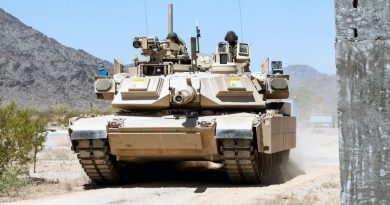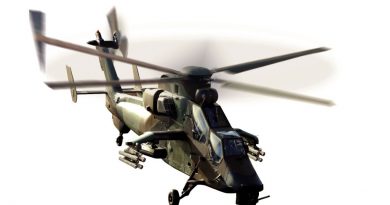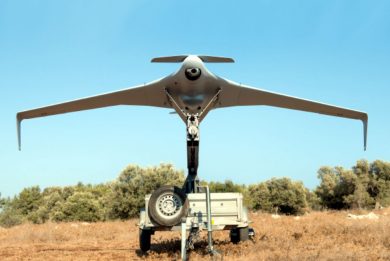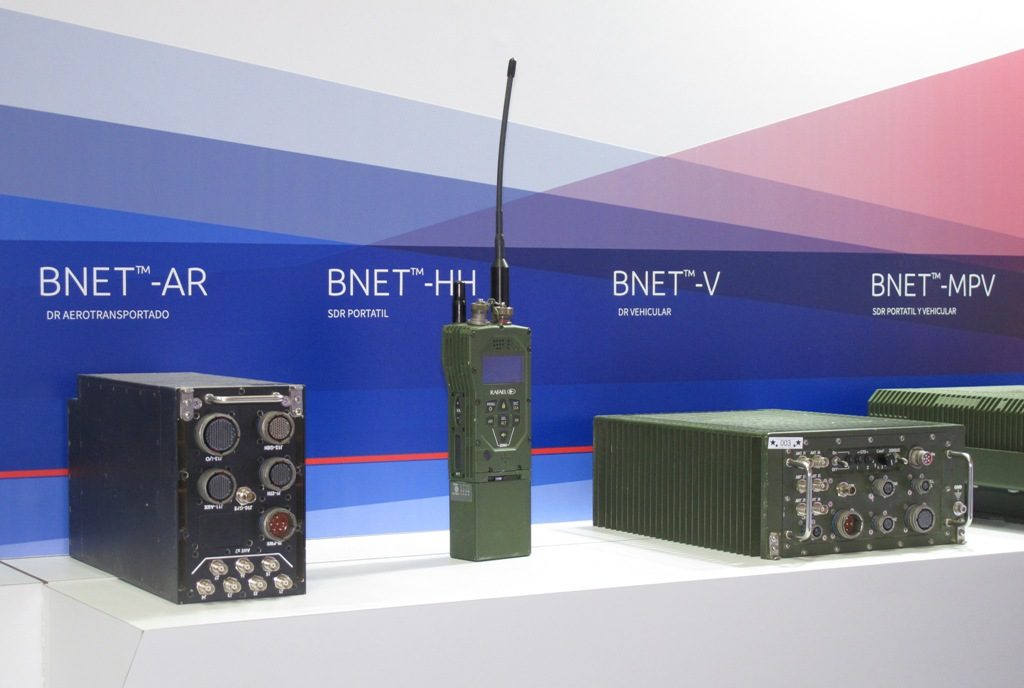
Rafael proposals for Colombia and Latin America
“The Latin American market for counter-drone solutions is emerging dramatically,” Aron Dovrat, Rafael Advanced Defense Systems Corporate Regional Director tells EDR On-Line in the company booth at Expodefensa. “We propose our Drone Dome system, which is now in service with the British Army following a fierce competition with leading companies,” he adds. According to Mr. Dovrat while 80-90% of the drones are commercial, the remaining 10-20% is much hard to defeat, as it uses dedicated communications and not standard ones. He underlines how the combined sensors of the Drone Dome, which include SIGINT, radars and electro-optic systems, ensure the three first steps of the process, find, locate and track, the last one, neutralise, being left to effectors. Deployable both in fixed or mobile solutions, the Drone Dome can protect from sensible targets to moving military forces. Although it is considered a niche market, at least in terms of volume of money, Rafael is looking closely at regional requirements both in the military and security domains.
“The depth of an operation is given by the radio coverage,” a Colombian officer told Mr. Dovrat, the difficult terrain where local forces operate being a major obstacle to communications. Rafael is thus proposing its BNET 5th generation radio suite, “which I might define as the ‘military Whatsapp’,” Aron Dovrat says, “the BNET generating a cloud in which every single radio is both a repeater and a modem.” Not only, every single item is also a spectral analyser, thus in case of jamming the whole system automatically shifts on a different frequency. Maximising spectrum efficiency led to the availability of a wide band that allows transmitting streaming videos, while the system can easily be connected to the internet when needed. Colombia needs improving its communications while reducing the number of repeaters located on the high mountains; overall these facilities are manned by around 6,000 military, roughly 30 per site, generating a huge logistic footprint as they often have to be resupplied by helicopter.
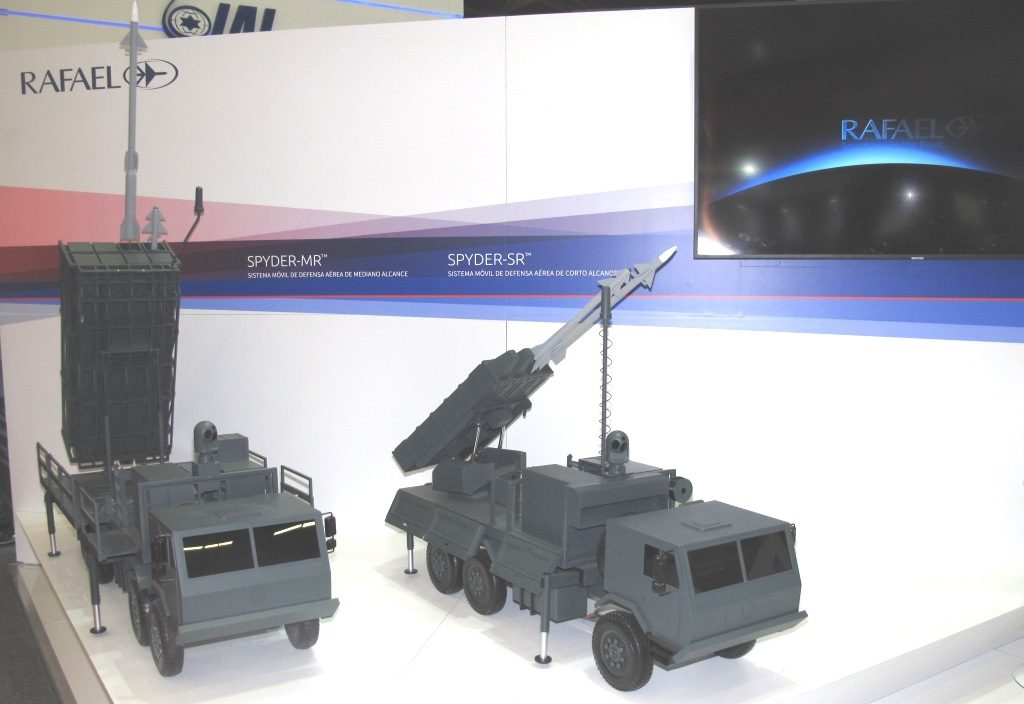
Rafael is obviously also looking with interest at the Colombian Air Defence programmes, more specifically the one with the Air Force. “We have a huge advantage as the service is already using our missiles, the Python and the Derby, on its Kfir fighters,” Dovron explains. “We are proposing a system in cooperation with a Colombian company that would provide radars, the solution being very cost-effective,” he adds. Rafael is also looking at the Army programme, but is awaiting, as the other potential competitors, that the political situation stabilises after recent changing.
Talking about missiles, Rafael is looking closely at the evolution of the fighter programme, and has made its proposals in order to avoid losing the capabilities currently available on board the Kfir in terms of weaponry, missiles and bombs, and electro-optic sensors, namely the Reccelite and Litening pods.
Still in the air, but this time in the rotary wing world, the Israeli company is fully supporting the AH-60L Arpia IV programme, its Spike missiles being currently the main mean to stop an armoured penetration over the country borders.
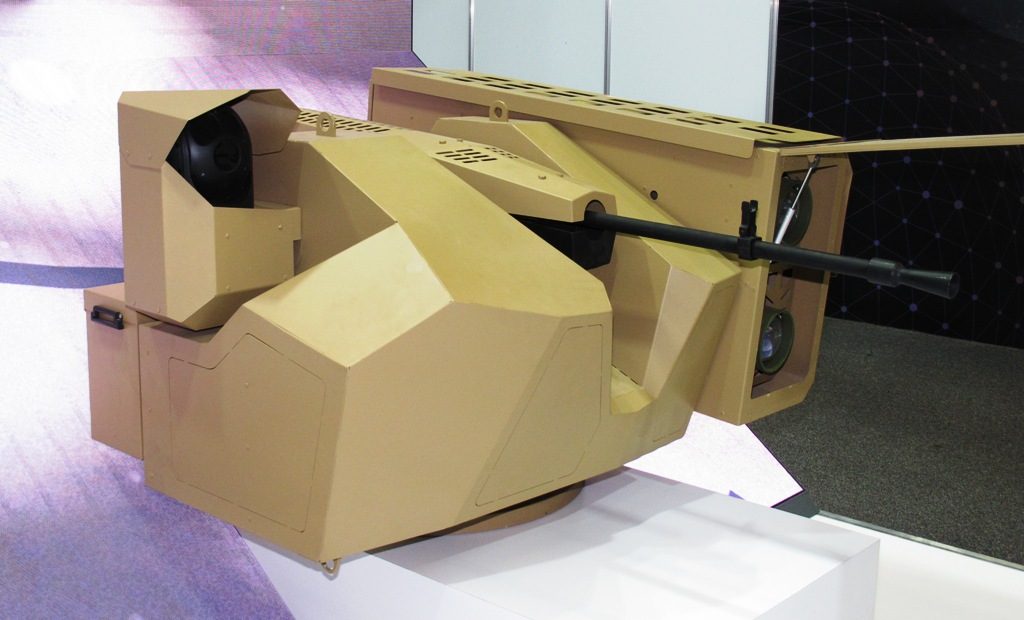
The company has developed a series of solutions for the upgrade of M113 tracked armoured personnel carriers, and the Colombian Army recently expressed the need to improve the mobility of its troops. The project should start in 2020, however it is still unclear if Colombia will buy more modern second-hand M113s from the United States or will upgrade those already in its inventory. Rafael is also proposing its RCWS and turrets for a possible upgrade programme.
“Looking at the wider scenario, Rafael is focusing on all major Latin American countries, such as Brazil, where we have an office, Chile, Ecuador and Peru,” Aron Dovron tells us at the end of our meeting. Before leaving he wants however underline two more elements that Rafael considers key in this very moment: “We are very strong in cyber, something which is needed in the whole region, and we are especially active in cyber training, another key issue being Intelligence, and more precisely big data exploitation, and here too we have some businesses ongoing, that of course I cannot disclose.”
Photos by Paolo Valpolini

